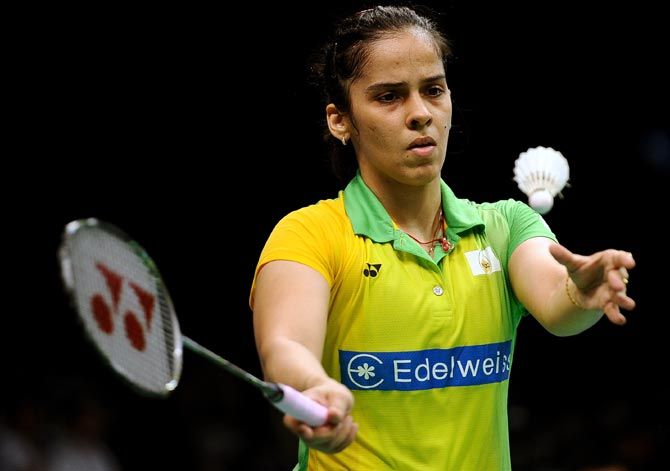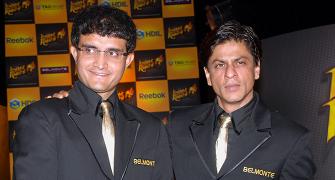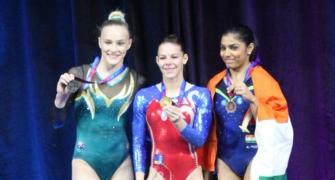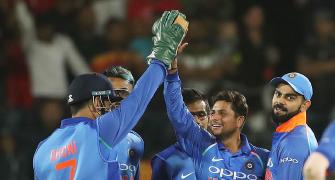However, former India coaches Vimal Kumar and Syed Mohammed Arif, favoured the proposed rule, saying it would make the players stronger.

The Badminton World Federation's proposal to reduce on-court coaching and tweak the scoring system has left international coaches a confused lot with the likes of Pullela Gopichand and Kenneth Jonassen questioning the very logic of such a move.
The BWF council has proposed that on-court coaching, which is allowed at the 11-point lemon break and at the end of every game in a match, be reduced but hasn't explicitly specified to what extent.
The world body's panel has also called for a best-of-five format instead of the current three-game structure. It has also been suggested that games be of 11 points each instead of the current 21-point format.
The plan will require endorsement at the BWF's Annual General Meeting in Bangkok in May to be implemented in international badminton.
Chief national coach Pullela Gopichand said he doesn't have any idea how the on-court reduction of coaching would be implemented and neither does understand the logic behind it.
"I don't know what are the supposed changes, I haven't seen the detailed draft, so I really don't know. I think there was a time when there was no on-court coaching and then they added it. Now again they want to reduce it. So, I don't understand the logic behind it," Gopichand said.
Denmark's chief coach Kenneth Jonassen, who guided Viktor Axelsen to a gold medal at the World Championship and the World No. 1 ranking, believes on-court coaching is a unique feature of badminton and gives the fans an interesting insight.
"It's my belief that on-court coaching makes badminton different from other sports which we are competing against - it's unique. From what I understand - TV loves it, gives everyone an insight to what is actually going on and therefore is a better product for viewers to watch," Jonassen said in an e-mail response.
"BWF can say what they want and of course nobody will or can argue that getting players to be more self-reliant is a bonus. But I don't believe that is the reason to change on-court coaching. It is just a very good and clever excuse to change. BWF again blames the on-court coaching for making the games longer, please bad excuse."
Former India coaches Vimal Kumar and Syed Mohammed Arif, however, favoured the proposed rule, saying it would make the players stronger.
"I think this rule will test the players more mentally and physically as they will have to deal with match situations on their own. Coaches should be allowed to talk to players during intervals but not when they are playing, it will be a real test of their calibre," Kumar said.
Dronacharya and Padma Shri awardee Arif seconded Kumar, saying: "Nowadays players are too dependent on technology and coaches. I think since they have to make instant decisions, players have to use their own brains and experience during matches."
Another proposal is to regularise a new scoring system of five games of 11 points each instead of the current 21-point system.
"It would benefit a few players initially while some will find it difficult. See I am not convinced about the reason for which these rule changes are being proposed. The 21-point system has been successful, it has grown well, it has become popular in many countries," Gopichand said.
Jonassen also claimed to be "unsure" about the new scoring system.
"I don't disagree that games are longer now but the breaks between rallies has now gotten to a point where players/pairs will take 30-45 second after a 10 second rally. I will never blame the players but it is a problem that the umpires allow this to happen.
"Overall I'm positive for this change but it needs to be done for the right reasons and can't be standalone. Professional umpires are a must if badminton has to move forward."
Kumar, who coached Saina Nehwal to silver medals at the All England and the World championship in 2015, termed it a "stupid idea".
"I don't think it is in the best interest of the sport to shorten the game duration. It is stupidity. Probably television has a role to play and it is unfortunate," he said.
The 74-year-old Arif, who has coached several players, including Gopichand, Jwala Gutta and Saina, said : "I think it will lead to a slam-bang way of playing the sport but after sometime, they will realise that even in this format, endurance would become the key and long rallies will come into play."
BWF is already trying a new service rule starting at next month's All England Championship where it has been made mandatory to keep the shuttle height constant at 1.15m from the surface of the court during service.
"...the new service height is - discriminating against tall players - what is next - different weight classes? Enforce the existing rules instead of making new ones which are hopeless," Jonassen said.
The formal proposals from the BWF Council will be circulated on March 30 to the membership in preparation for the BWF Annual General Meeting in Bangkok on May 19.









